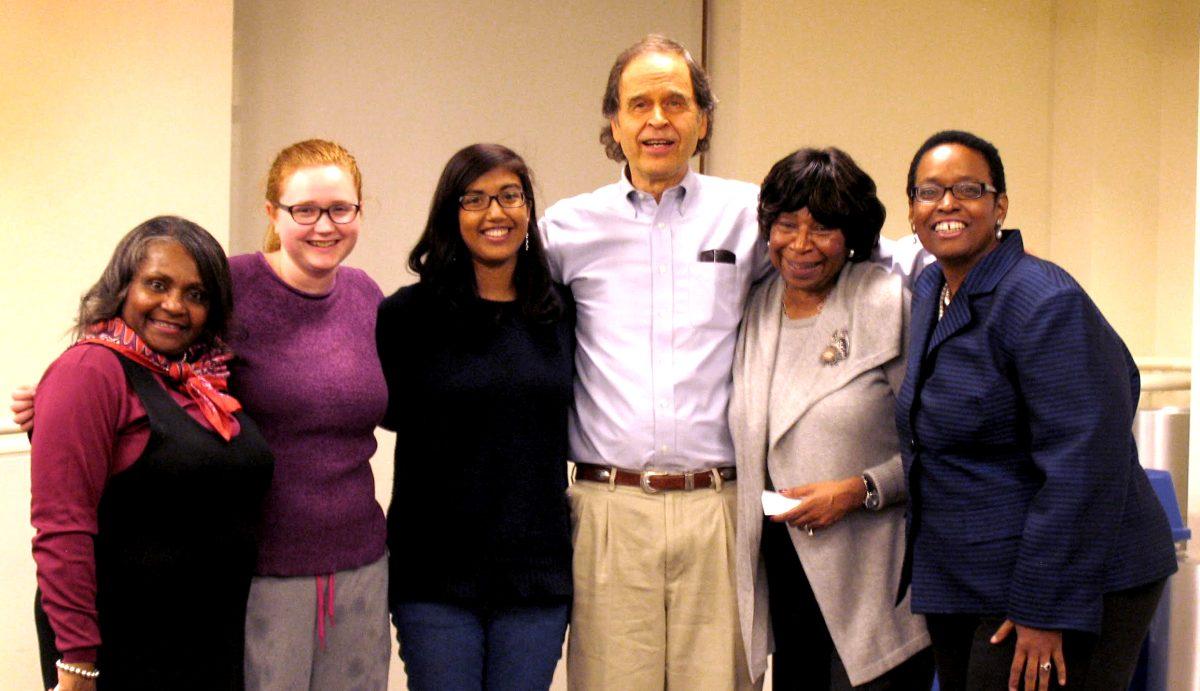Students and faculty members gathered for Actualizing Equity: a Partnerships Learning Series, hosted by the Partnerships for Diversity and Inclusion. Comprised of a lecture by Allan Johnson, lecturer and author of Privilege, Power, and Difference, along with three following workshops, students and faculty members explored equity issues and tools for positive change.
According to the Multicultural Affairs Coordinator, Ananya Ghemawat ’17, this series is meant to encourage students to engage in discourse about topics related to privilege and power. She believes these issues are recurrent in our daily lives and should be recognized by all students.
“One of the goals of this lecture series, sponsored by the Partnerships for Diversity and Inclusion, is to have our community engage with each other around topics of privilege and power. By engaging with each other on issues of identity, we can learn from one another and create a more inclusive and understanding community,” Ghemawat stated.
At the lecture, Peggy McIntosh, a senior researcher at the Wellesley Centers for Women, introduced the complex dynamic of privilege. She noted the importance of seeing privilege from many vantage points because of the complexity in nature. Furthermore, she accentuated the intersectionality of privilege and the need to analyze the multiple power dynamics. McIntosh asserted “privilege is above the hypothetical line of social justice… [it] blows away the line of meritocracy.”
Through this lecture series, McIntosh hopes to expand students’ approach to privilege. She hopes this series will encourage students to see “systemically” in order to recognize the gravity of intersectionality in privilege and the impact it has on our daily lives. She hopes students will think differently and through this new thinking, will be instrumental in changing society’s perception of privilege, moving towards a more inclusive, diverse community.
“What this country has done over the past 150 years has failed,” Johnson stated.
Johnson focused his talk on the meaning and significance of privilege in our society. With this cynical statement, he started listing data and hard facts of growing disparity, among all groups, in our nation. He mentioned the discriminatory incarceration rate, unequal pay among those the more privileged, unjust promotion rates, and income inequality.
Johnson proposed three main components of privilege. He asserted the innate and exclusive nature of privilege and the social recognition of it that makes solidifies its presence in our society. Throughout the lecture, he discussed the historical context of this notion and argued the importance of observing the past as an integral component to our present understanding by stating that the “present is past in continuity.”
Sitara Zoberi ’19 attended the lecture and noted that she felt a little disoriented. She felt as if the lecture was too concentrated on the general white population, as Allan Johnson, a white lecturer, discussed the notion of white privilege to a mainly white audience. For future events, she hopes to see speakers share personal experiences about racism and other class challenges. Nevertheless, Zoberi believes this event is important for a more educated community and student body, which is a notable step towards a more open environment on campus.
Zoberi reflected “I can’t think of anything he said that I disagreed with. However, I don’t think that, as a person of color, the lecture was aimed at me. It felt like a white person addressing a group of white people on white privilege,” Zoberi explained. “Personally, I would rather hear the voices of people of color regarding their experiences and opinions on racism, but I also recognize the importance of reaching out to white people with power and presenting racism in a way they can understand.”
Sabina Unni ’19 also addressed the fact that the speaker was lecturing from what she considered a place of privilege, “I think the lecture really addressed issues of privilege head on, and didn’t stray away from awkward or uncomfortable moments. The presenter was a white male, and really broke down what it meant to be a white male presenting to us, in terms of legitimacy and privilege. I don’t think the lecture questioned my idea of privilege, but it would’ve had I not been exposed to the topic before.”






